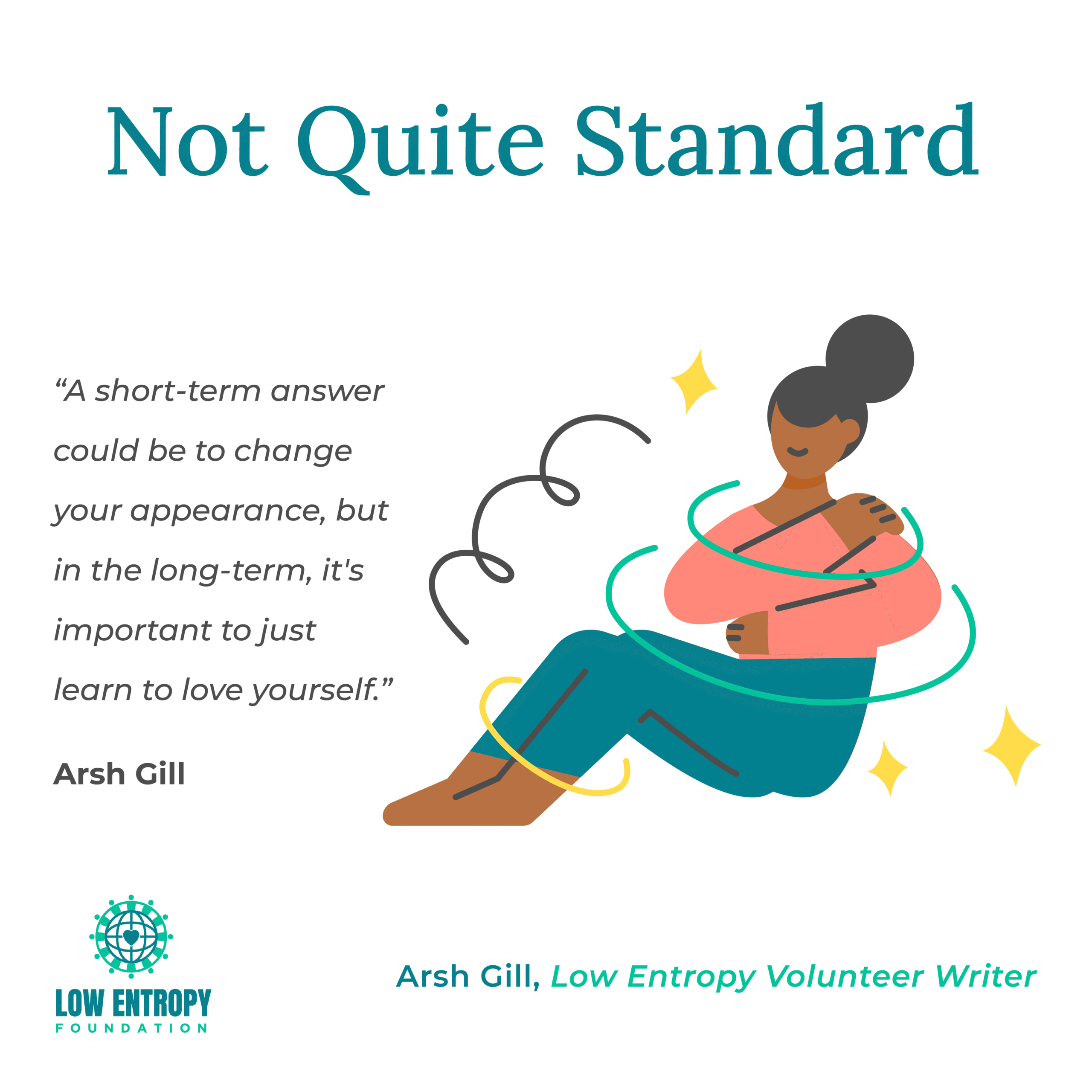Arsh Gill, Low Entropy Volunteer Writer
Equity is oftentimes defined as being fair and righteous, being just and impartial, and having neutrality, which is oftentimes not the case when it comes to beauty standards and the cultural expectations of bodies in different societies. These standards and expectations oftentimes vary greatly across different cultures and across different time periods, including historical views that have been passed down through generations and have failed to evolve with an ever-evolving world.
Moreover, what is considered attractive in one culture may not be the same in another. This can leave individuals in a tough spot, as they may not feel that they fit the beauty ideals of one society or the other, or even both. For example, in Punjabi culture it is common for women to be idealized and told that they’re beautiful if they are tall and slim, with long black hair and big brown eyes. In Western society, however, I have often seen more attention given to other beauty standards, such as having blonde hair, being more petite and having blue eyes. This can leave individuals feeling insecure, as British Columbia is very diverse and individuals can often feel that they are not as beautiful as others because their features and their bodies are not recognised to be so, especially when they are a part of a minority group that doesn’t get representation in media and advertisements.
With that being said, it’s important to acknowledge that the impact of beauty standards and cultural expectations can be very burdensome and can take a toll on one’s mental and physical well-being. By this I mean that individuals can develop disorders and take part in counterproductive activities in order to feel that they fit in with others who are recognized to be more beautiful. Furthermore, it’s important to understand that individuals are victims to beauty standards and body expectations that are long-standing and come from cultural histories where there should be change. With this being said, one should appreciate their body and promote acceptance, as well as encourage others in their uniqueness. We should refuse to fall into the trap of aligning with societal pressures in order to conform to a specific ideal.
It’s also important to recognize that trends, standards and expectations are ever-changing in our world. A short-term answer could be to change your appearance, but in the long-term, it’s important to just learn to love yourself. I say this because even a decade from now, beauty standards and body ideals could be completely different then what they are now. For example, in the early 2000s being extremely thin and having thinner eyebrows with short hair was popularized, but today it has become a trend to have a curvier body with longer hair. With that being said, it’s important, rather than trying to change yourself in order to be accepted, to learn to love your own self, learn to love your body and learn to love your beauty.
Overall, beauty standards and cultural expectations of bodies are complex and multifaceted, and are continuously being impacted by media, cultural norms, advertising, historical trends and the community around you. It’s hard to control peoples’ unwarranted opinions, and I agree and recognize that these opinions can have detrimental effects on one’s self-esteem and body image. All beauty standards and cultural expectations of bodies are subjective in nature. Just because some people may believe that you do not fit with their ideals does not mean that you are not actually the most beautiful person they have ever seen, so focus on positivity in this critical world.
—
Leave your thoughts for Arsh in the comments below. You can also follow us on Facebook, Instagram, TikTok, Twitter and YouTube to stay up-to-date with Low Entropy news!

